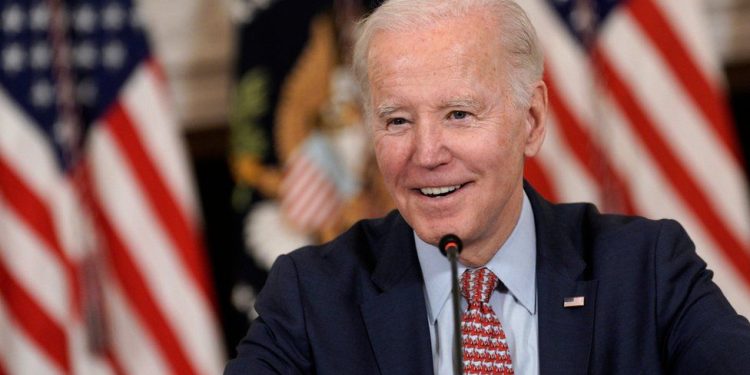During an interview with Time magazine last month, President Biden mixed up key facts about the economy, foreign policy, and his tenure in public office, even confusing Chinese President Xi Jinping with Russian President Vladimir Putin. Biden, 81, falsely claimed that wage increases have outpaced inflation during his presidency, underestimated the amount of U.S. foreign aid to Ukraine since Russia’s invasion in February 2022, and overestimated both Japan’s defense spending and Africa’s population, according to a post-interview fact check by Time.
Biden stated that wage increases have exceeded the cost of inflation, referring to pre-COVID prices. However, according to the latest US Bureau of Labor Statistics report, real average hourly earnings, seasonally adjusted, have only increased by 0.5% from April 2023 to April 2024, and median weekly wages have not kept up with inflation. Inflation peaked at 9.1% in June 2022, the highest increase since the early 1980s, which Biden has attributed to his predecessor.
When asked whether his newly announced tariffs on Chinese goods would raise consumer prices, Biden confused the names of the leaders of America’s two major foreign adversaries.
“No, because here’s the deal. There’s a difference. I made it clear to Putin from the very beginning that—I’m not, we’re not engaging in,” Biden answered before trailing off briefly.
“For example, Trump wants a 10% tariff on everything. That will raise the price of everything in America,” he said.
An editor’s note from Time reads: “Biden appeared to mean Xi here, not Putin.”
Turning to the war in Ukraine, Biden said at another point, “We spent a lot of money in Ukraine, but Europe has spent more money than the United States has, collectively,” adding moments later that he “spent a month in Ukraine when I was a senator and vice president.”
The United States has contributed approximately $68 billion more than the European Union since Putin’s invasion of Ukraine on February 24, 2022. The EU’s total expenditure for Kyiv’s defense and humanitarian assistance is about $107 billion, which matches the amount of U.S. aid for Ukrainian President Volodymyr Zelensky’s government.
There are no contemporary records confirming that Biden visited Ukraine while serving as a U.S. senator from Delaware between 1973 and 2009, during which he chaired the powerful Foreign Relations Committee for 12 years.
During the interview, Biden rhetorically asked if it was conceivable that Japan would allocate 3% of its GDP to defense and make a rapprochement with South Korea at Camp David in response to threats from North Korea and Europe. However, World Bank data shows that Japan has spent around 1% of its GDP on defense since 1960.
When questioned about concerns over his age, Biden highlighted the significant federal spending he has signed into law, which former Obama administration officials have linked to rising inflation, along with unprecedented student loan cancellations. He asserted his readiness to serve a second term that would end when he turns 86, urging people to watch his performance and citing his achievements in his first three and a half years.
In another exchange, Biden joked about being able to physically handle a journalist and mixed up details about his trips and achievements, including confusing his 2022 visit to South Korea with an investment announcement.
Biden also incorrectly suggested that Africa’s population would grow to a billion in the coming years, though it is currently around 1.4 billion.
He was also unable to recall when he last spoke with Israeli Prime Minister Benjamin Netanyahu or the whereabouts of CIA Director William Burns, one of his administration’s chief negotiators for returning American hostages from Gaza. Currently, 77 hostages, including five U.S. citizens, are still held by Hamas. Biden expressed a call for a cease-fire to secure the hostages’ release and inquired about Burns’ location, indicating a lapse in situational awareness.
 Telegram is where we really talk. Don't miss out!
Telegram is where we really talk. Don't miss out!







